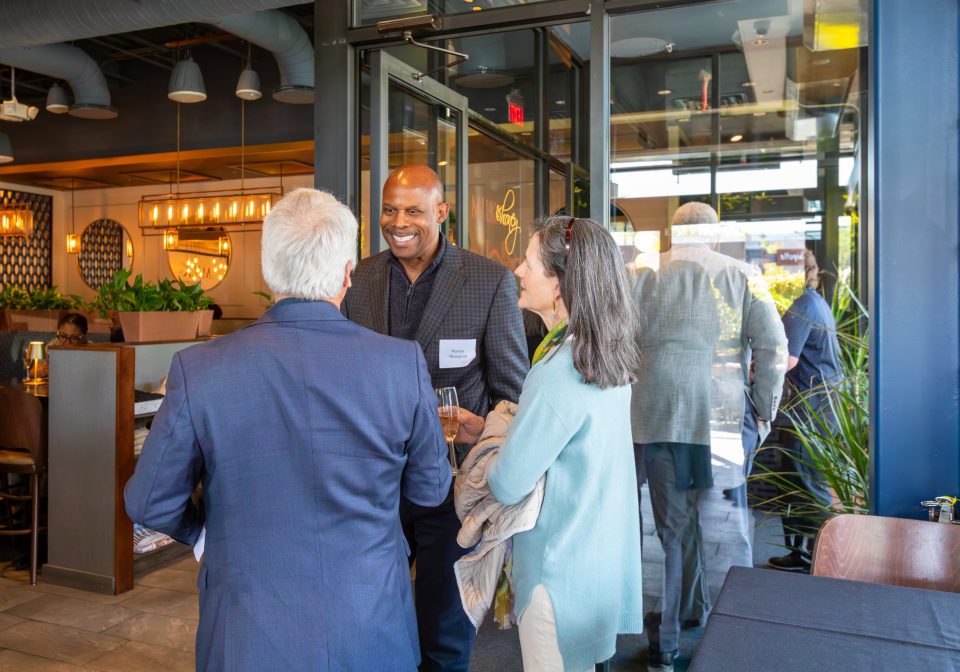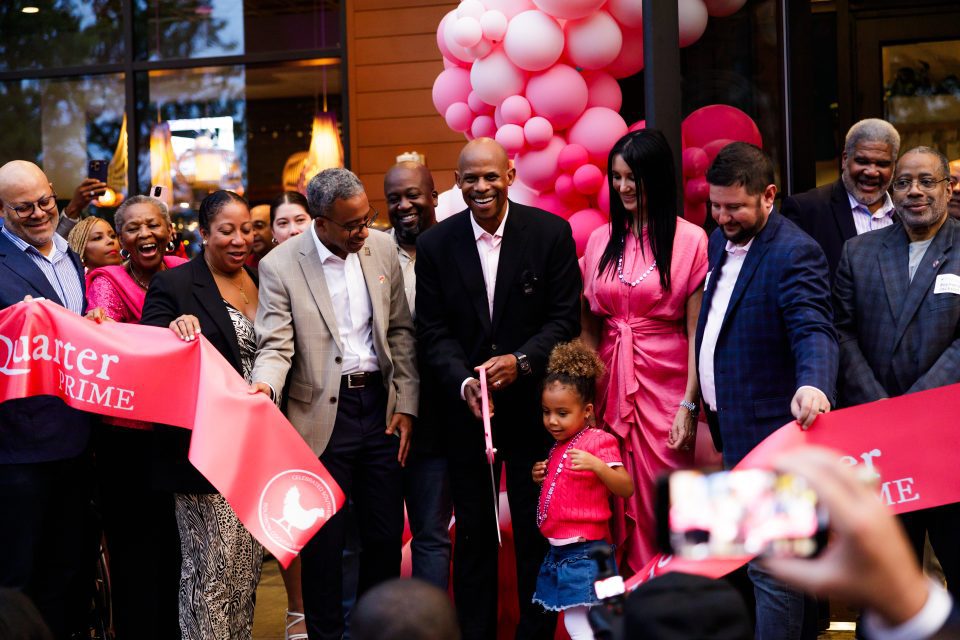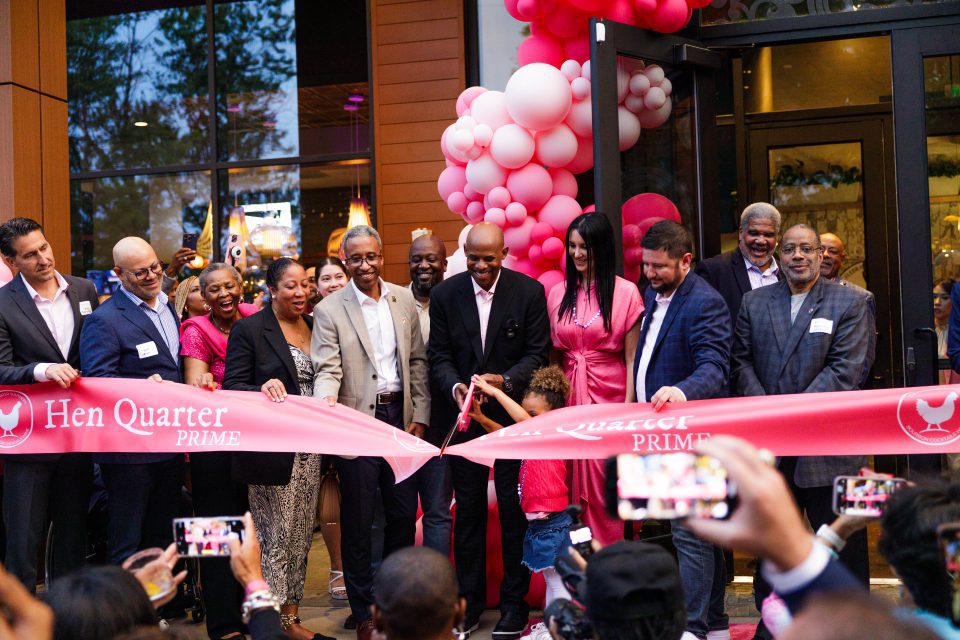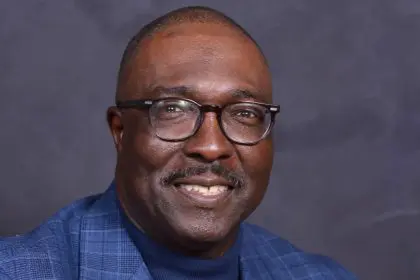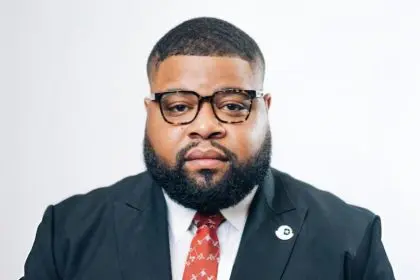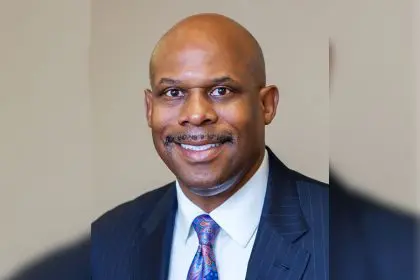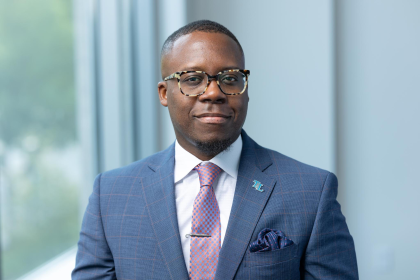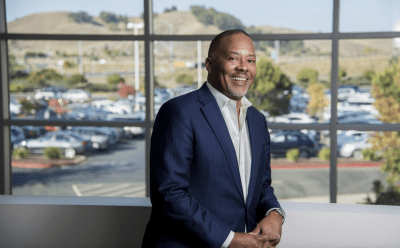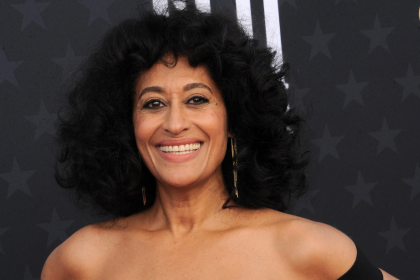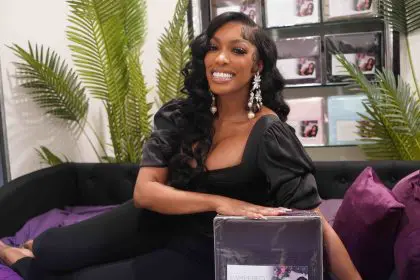
Warren Thompson is the President and Chairman of Thompson Hospitality Corporation, the largest minority-owned food service and facilities management company in the U.S. Under his leadership, Thompson Restaurants operates 18 brands across 70-plus locations, with 6,000 associates and nearly $1 billion in revenue, serving clients in 45 states and six countries. His remarkable journey began with a leveraged buyout of 31 Bob’s Big Boy restaurants from Marriott, and has led to Thompson Hospitality ranking among the top ten in Food Management Magazine’s 2020 list of the “50 Largest Contract Companies.”
In this conversation, Thompson shares the principles that guided him through 33 years of business growth, the importance of education and mentorship, and his unwavering commitment to family values and community contribution.
Did you ever imagine reaching $1 billion as a hospitality CEO?
When I started this company, I did not imagine that we’d hit a billion dollars. I did imagine that we would get up in the millions, and we had a 10-year plan in place. We obviously have gone beyond that, now hitting our 33rd year. We continued to update the plan as we moved forward, but what I really envision, I started the company with three major objectives. One, to make it a family business. Two, to be able to take care of my parents for as long as I had them. And three, to be able to give back to the community. The last one, I say, is the most important objective, because it’s an open-ended one. I can never check the box and say I’ve done that, or I cannot do any more, so that really drives me today to do what I do and to continue to attempt to drive this company forward.
How did the DC area play a role in your success?
I chose Northern Virginia as a place to launch the company, because it represented what I saw 33 years ago as what America would look like going forward. A very diverse community, a community built on not only government funding and government contracting and employment, but also a strong private sector. I saw an area also that, steeped in education with vibrant educational institutions to support the population. So I saw it as a great place to launch a business, and that if we could succeed in the Northern Virginia DMV, we could replicate that model across the country.
Why is it important to have brands when establishing a hospitality portfolio?
I spent nine years learning the business while working at the Marriott Corporation, but I not only learned how to flip hamburgers and to run a restaurant, I also spent a lot of time understanding two other critical aspects. One, how to create a family business and number two, how to create a strong brand. The Marriott brand, 40 years ago, was the most valuable asset on their balance sheet. It was worth more than the brick and mortar, because it was a symbol of quality, it was a symbol of integrity, it espoused the principles of a family run business.
So, I sought to do the same thing, and our first attempt was to create the Thompson Hospitality brand. And I told my team, day one, 33 years ago, that one day people across the country would know the Thompson Hospitality brand, and we’ve been able to accomplish that. And then, under that, what I would call all the sub brands that we operate, all of the restaurant brands, our contract brand, our facilities brand, all of those brands fit under the Thompson Hospitality family of restaurants or family of contracts. So once we created the overarching brand, and what that stood for in terms of quality, family owned business, giving back to the community, then the other brands, the sub brands would also try to and continue to espouse or live up to those principles.
Why would you suggest young entrepreneurs gain experience at established brands like Marriott?
Starting a business is very, very risky, no matter what industry, but in particular the hospitality industry. When you look at the number of restaurants or hospitality businesses that open up and close within two years, three years, 90 percent of those fail. The way to reduce that is to understand and know the business prior to getting into it, and that’s why I chose Marriott as a place to work and learn the business.
When I started at Marriott, fresh out of business school with an MBA, I didn’t start in the office. I started as an assistant manager in a fast food restaurant to learn the business from the bottom up, to understand what it’s like to close a restaurant at 12 o’clock at night and clean it before going home, to understand what it’s like when that hourly associate on the front line doesn’t show up to work. What do you do? So, moving from that to ending as the highest-ranking African American at Marriott at the time, and leaving Marriott, and structuring a deal to buy 31 restaurants from Marriott to me was the best way to start a company and minimize or reduce the risk of doing so.
So, I encourage younger entrepreneurs, and people who want to start their own business, get some experience in the industry first, make mistakes on someone else’s dime before you spend your last dollar on a particular venture.
What did getting an MBA provide that you still utilize today as a CEO?
I was very fortunate to have two parents who were educators. My father had a master’s degree in education, and so I learned at a very early age the importance of not being trained, but being educated, and there’s a big difference. You can be trained to do a task, but when you’re educated, you understand why that task is important, and it’s a deeper knowledge and creates a better result.
So my parents were always advocates of getting a strong education, so it was not a question of whether I would get an MBA or not. It was a matter of where would I get the MBA? I chose to get it from the University of Virginia. When I approached UVA about admittance, they had a policy. You had to work at least two years before being allowed to go, but I had enough businesses as a kid, raising hogs, selling produce out of a school bus, having an exterminating business. All of those things that I did, prior to applying for graduate school, allowed me to argue why they should allow me to move directly in from undergrad into the MBA program.
First step, getting into a good program, getting into a program that’s going to fit the need and support your dream, UVA Darden school was exactly that. So do I use those talents today? I think the most applicable part of the program was the program dealing with human behavior, because I’m in a people driven business, people oriented business, labor intensive business. There are a lot of times that I can reflect back on cases that I had in business school or studies that were done back then that still apply today, Maslow’s hierarchy of needs, understanding where that associate is coming from and what we have to be able to address, if we want that associate to be productive.
When you think about Reginald Lewis and other billion-dollar players making acquisitions, how important is the power of acquisition in building a business like yours?
It’s amazing that you mentioned Reginald Lewis because he was a mentor of mine, though we never met face to face. I studied everything that he did, and, in fact, when I was starting my company and attempting to raise $1.9 million of equity, I had $100,000 in the deal. I pulled a Wall Street Bud Fox move. I sat in his office all day in New York, trying to meet with him with my business plan in hand. I was not able to meet him. I left the plan with the receptionist. I got a call from him a few days later, saying that he would give me the $1.9 million for 75% of my company, and I said, “All due respect, I’m leaving Marriott, and I don’t want to go work for you, I want to own and control the company.”
He allowed someone to do the analysis on it, that person and I hit it off, and actually the person left Reginald and came on board with me to help me structure the deal. I’ve always admired the transaction that he did, to pull that off 45 years ago in an environment such as the one back then was amazing. Our paths also crossed, he’s a graduate of Virginia State University, where both of my parents received degrees. He gave the first million dollar gift to Virginia State, and I’m happy to say we have now given $2 million of scholarship money to Virginia State, and named the hospitality program there after my parents.
What would you tell young graduates in a commencement speech at an HBCU?
I would say to them, establish your goals early, make sure that you own them. They should not be anyone else’s goals or dreams. Establish what your dream is or dreams are. Once you establish that, don’t change that, no matter what. When I started this company, I said I wanted to make it a family business, I wanted to be able to take care of my parents, and I wanted to be able to give back to the community. Those are the three guiding objectives or goals that have formulated everything I have done over the last 33 years, and we as a company and I as a person, have not deviated from those basic fundamental goals.
When I lost my parents, I then started to take care of aunts and uncles. It’s why I wake up every day and do what I do, and do it with excitement, and so I don’t rely on external drivers. I don’t rely on the media to say I’m successful. I feel successful because I’m able to live up to the goals that I set for myself 33 years ago. So if the media came out tomorrow and said, Warren Thompson is the worst entrepreneur in America, I would laugh it off and say, but as long as I’m giving back to my community and taking care of my family, then I don’t really care what someone else says or thinks about what it is that I’m doing.
So, that’s what I would say to young people. Set your own goals, be your own judge, you determine whether you’re successful or not. Don’t allow someone else to put a label on you.
What would be the title and first chapter of your biography on success?
I think about my parents every single day, and I’m thankful for the guidance and love they gave me. I grew up in a segregated south. The first five years of school we attended a segregated school, but I was fortunate that my father taught math in that school, my mother taught home economics. My brother and I both would get in the car with our parents, the four of us would ride to school every morning, five days a week. Saturdays, we worked, we raised hogs. Sunday, we would all go to church together. We had a seven-day-a-week program as a family that set the foundation for this strong sense of family and commitment to the community.
While segregation was designed by this country to put Black people and African American students behind, I think it really put us ahead. It gave me the foundation that I would go to school with my parents. I was educated by all African American teachers who taught because they loved us, and they cared for us as kids. I attended church where people emphasized that I could do anything I wanted to do as long as I was willing to work hard at it. So, what was designed by the country to put me down as a young African American kid gave me a tremendous foundation. The first chapter I would call it, “Laying the Foundation.” The foundation is so critical and so important, without a proper foundation, a building will fail. Without a proper foundation, one’s life will be here and there, scattered. You have to have that foundation in place to be successful.
How do you leverage knowledge and insight as you move forward as a CEO?
I do spend quite a bit of time talking to young people. The part of my job that I enjoy the most is when I have the opportunity to go to one of our colleges or universities and speak to students, especially the HBCU students. To go in and talk about where I started, where I am today, and let them know that if I can do it, coming from the background that I started, they can do it as well, but I’ve made mistakes along the way. Naturally, they will make mistakes along the way. It’s what you do when you make those mistakes, do you learn from them, or do you repeat them? And if you learn from them, then even mistakes can be valuable in the process.
So I think that when you ask me, what can we do? What do I do to disseminate that? I think it’s trying to spend time with young people having an impact. I had some great mentors. You mentioned John Johnson, once again, I believe you can have mentors, even if you never really spend a lot of time with them face to face. I sat in an audience once when he challenged us as young Black MBAs to go start our business. It was at that particular conference that I sat out in the hallway with some others, and we put the framework of a company on the back of a napkin in L.A., and it was that blueprint that launched Thompson Hospitality.
But he challenged us as a group. He said we were jailbirds, all sitting there in our pinstripe suits, and he talked about how difficult it was when he started his company, and how we had no excuse, this was back in 1990, not to be able to start our own businesses. And I said, “You’re right,” I said I was gonna leave Marriott at seven years. It was now at that 7 1/2-year mark, and I got really busy, and left the company after nine years to start Thompson.
How do courage and curiosity propel you to continue in business?
I think that when you’ve been in business for 33 years, and you’ve been running a company for 33 years. Some often ask me, “how do you stay motivated? How do you get excited about waking up every day?” Well, we continue to have a 5 year rolling plan. So right now we’re two years into our five-year plan. We’ll meet this summer, we’ll roll that again. We constantly update our business plan, and our business has evolved and changed over the years based on some of the external pressures and external things that are happening.
Right now, we’re under attack by DEI, people who want to eliminate diversity, equity, and inclusion. Well, five years ago, that was a very strong thing that we were happy to be able to say we brought to the table. We still bring it to the table, we just refer to it as something else, but that too will pass. Three years, five years from now I’m hoping that people will come to recognize the value of diversity, equity, and inclusion, and it’ll come back even stronger than it was before. That’s my hope, but if it doesn’t, we’ll figure out a way to meet the challenge of that time as well.
I get excited about growing our business in new avenues. Our retail portion of the business has come on strong in the last three years. We were in the middle of COVID, we decided to really grow our retail business. Now, most people would have said that doesn’t make any sense at all, but I knew COVID wasn’t gonna last forever, and we could come out of COVID stronger than we entered COVID, and that there would be a lot of acquisition opportunities coming out of COVID.
And the same thing right now with the uncertainty about tariffs and things like that. There are opportunities today that didn’t exist three to five years ago that we’re now looking at and hope to take advantage of. So the digital age has changed our business dramatically. You can either be fearful of it, allow it to run over you, or you can say, that’s gonna be another tool in my toolkit. It’s gonna help us talk to our customers more directly. It’s gonna make us more efficient in terms of operating and make the life of the manager in the restaurant a lot easier. So we’re trying to get ahead of the technology aspect, and the impact that’s gonna have on our business and utilize that as a strength as opposed to a challenge.
How do you approach AI and technology for efficiency in your business?
I’m excited about it because the biggest challenge we have in our business is the forecasting of demand. I’m today relying on humans to figure out how much to produce for lunch today in any operation. Once we fully have AI implemented, it will be a tool in the toolkit to say to that manager, you can expect 225 people to come in today, 50 of them are gonna order chicken, 50 are gonna order beef, the certainty of that forecast will be a lot better, which means we’ll we will be able to become more efficient in productivity and production. We can reduce the amount of food waste we have.
So you can imagine on any college campus today trying to project or forecast consumption. The average campus might have 2,000 students eating lunch today. Well, technology is gonna allow us to forecast a heck of a lot better and reduce the amount of waste that we have from over producing certain items and so forth, first and foremost.
Secondly, it’s gonna allow us to market better to the customer to say to that customer we anticipate on your birthday, you’re gonna go to one of these types of restaurants, and this is what we can offer you, and so we don’t send a coupon or something for marketing of our quick, casual brand, when we know that customer, on that particular day is one is gonna go to a more upscale full service restaurant. So I think AI is gonna help us as we address and talk to that customer. And it’s gonna be a lot more efficient than using the media, and using TV, and using the type of ads that we have in the past.
What do you do to enjoy your vision and success in your off time?
I have a 4 1/2-year old daughter, so a lot of what I do is what she tells me. We watch Bluey a lot, and she told me the other day that she owns the company, and I work for her. So you can imagine, but I’ve been very fortunate to have a young daughter now at this point in life, and I spend as much time or a lot of time with her. We go to restaurants. She’ll do table visits. She’ll go around to everybody in the restaurant and say, my Daddy owns this, how’s your food? And so just watching her soak up and become such a sponge with our business is just amazing.
But I also spend time now with young people. When I say young people, people in their thirties, 28 to 30 to 32 who are just starting their businesses, and I get a lot of excitement out of that, talking with young people and understanding what it is that they want to accomplish, and how they’re going to accomplish that, I enjoy that.
I’m still pretty involved in the stock market. I love investing, I do a lot of my own investing. I always say, if I can do it better than the banker, why am I paying the banker? I’m very active in that, on the day-to-day basis. And it’s totally different from what I do for a living, in terms of running the hospitality company. It forces me to understand where business is headed, what industries are hot, what companies are doing well, because many of those companies are our customers and clients. So, I don’t wanna ever go in to meet with a customer and client, and not understand what their financial situation today, and where they’re headed in the next three years. So, following them as an investor also allows me to understand their culture, their needs, and where they’re headed, and so I can be a much better vendor for them.
